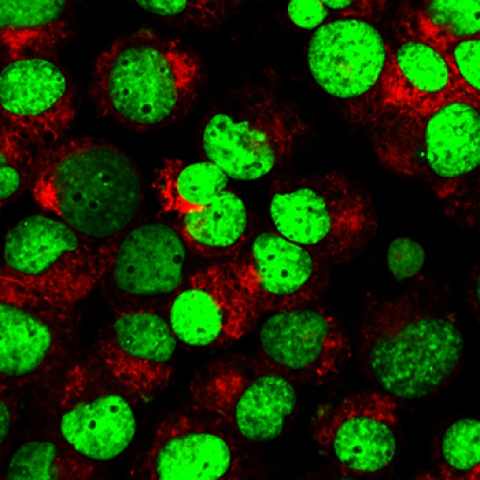Interdisciplinary Initiatives Program Round 3 – 2006
Michael F. Clarke, Internal Medicine
Patrick Brown, Biochemistry
Steven Quake, Bioengineering
Cancer trails only cardiovascular disease as the leading cause of mortality in the US. Cancers of the lung, colon, breast and prostate, all derived from similar types of cells, account for the majority of cancer-related deaths. Recently, our group has made two important discoveries about the various populations of normal and cancer cells in tumors. First, we find that in tumors arising in the breast, colon and head and neck that only a subset of the cancer cells, called cancer stem cells, drive the growth and spread of the tumor and are ultimately responsible for patient morbidity and mortality. Thus, to cure cancer we must learn to eradicate cancer stem cells. Next, compared to normal tissue, normal cells that infiltrate the tumor are “activated” and may supply critical factors that are needed to maintain the growth and viability, growth and spread of the cancer stem cells. There are 2 primary scientific goals of this grant. The first is to develop prognostic tests that will allow us to determine the best way to treat a patient with colon cancer. The second is to identify new therapeutic targets to treat cancer. To achieve these goals, as envisioned by the Bio X program, we have assembled a highly collaborative, multi-disciplinary group drawn from several departments and schools of Stanford University including members from the Departments of Bioengineering, Biochemistry, Medicine and the Stanford Institute of Stem Cell Biology. The team is developing novel, cutting edge technology to understand at the molecular and cellular level how to solve these problems.




